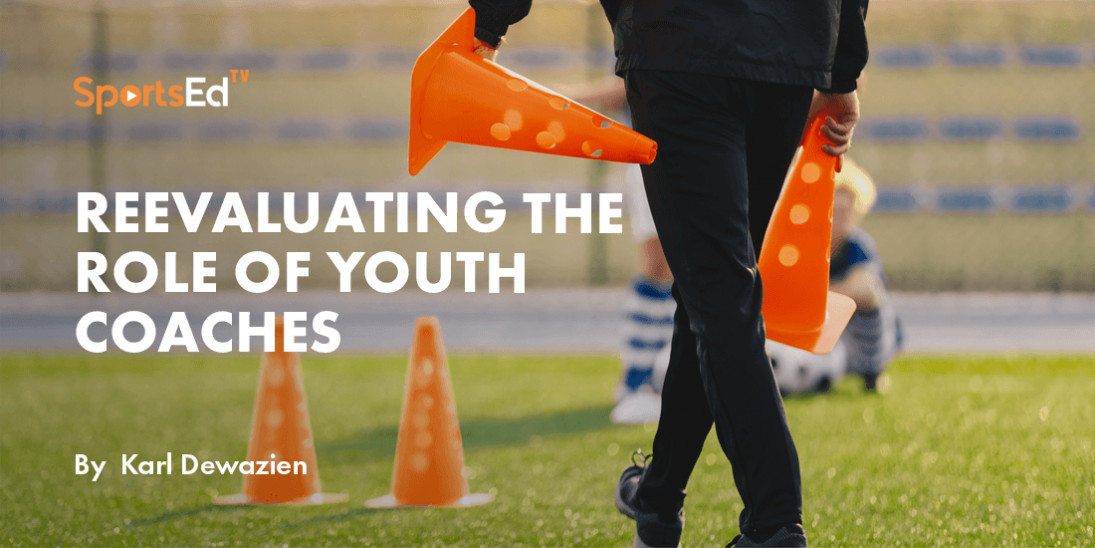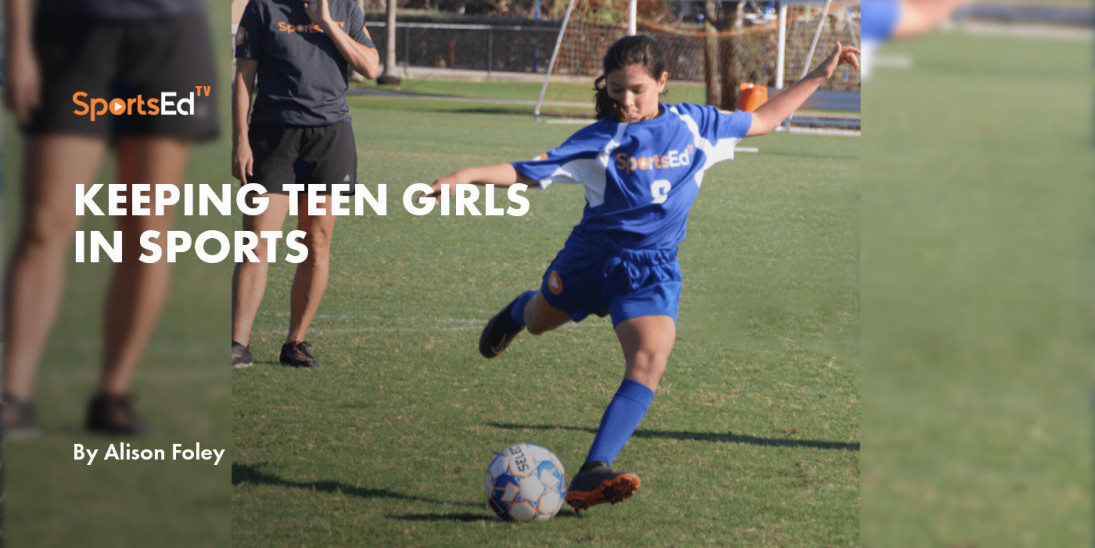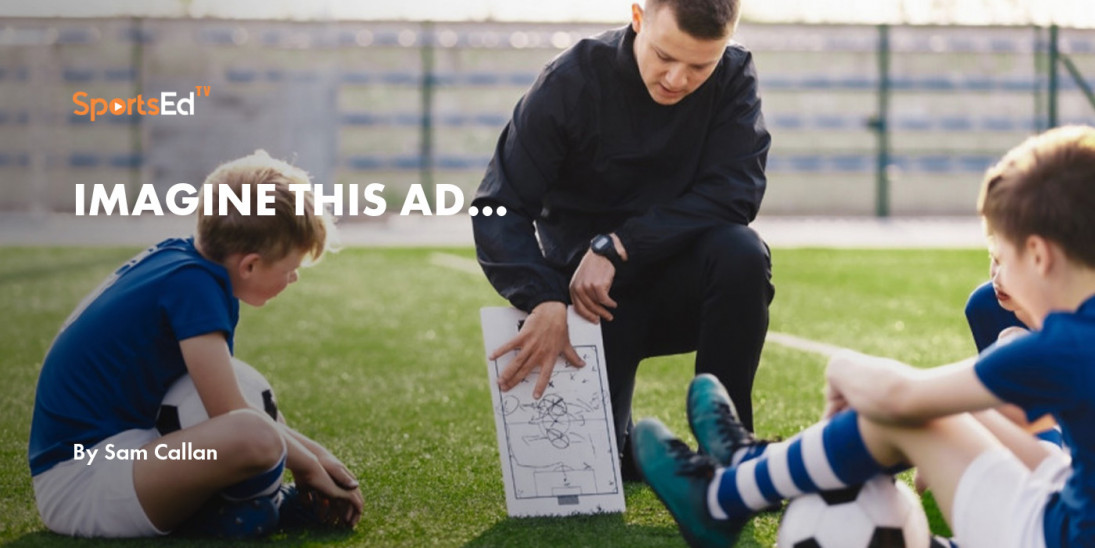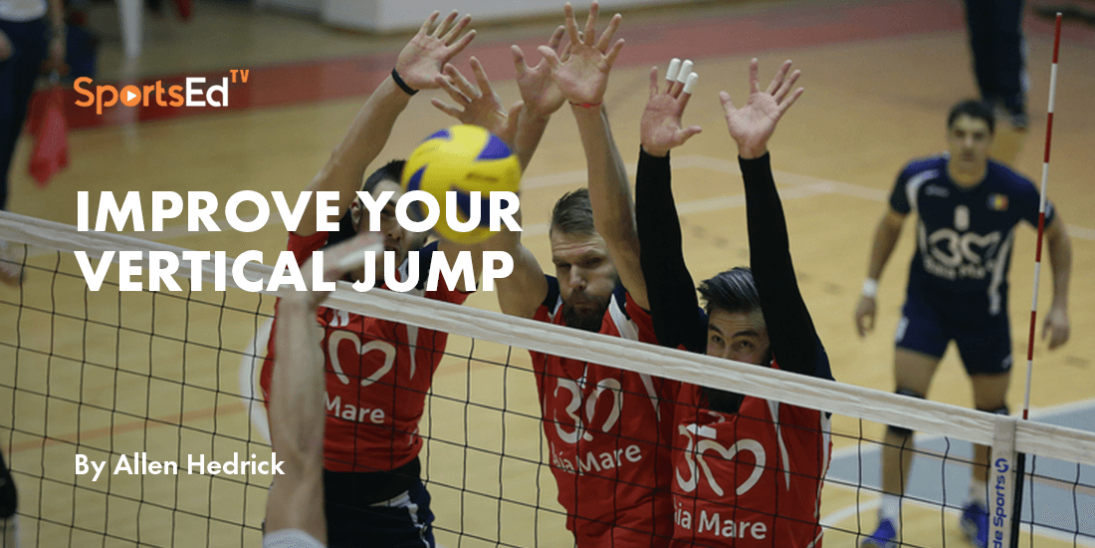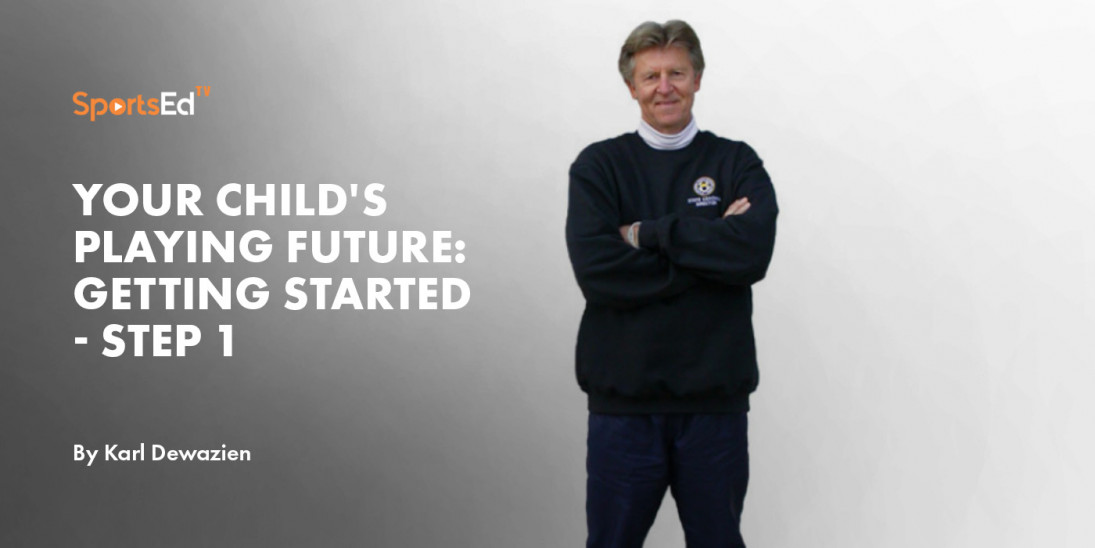Soccer
Welcome and thanks for visiting...

SportsEdTV Talks With Seattle Sounders Defender Shane O’Neill
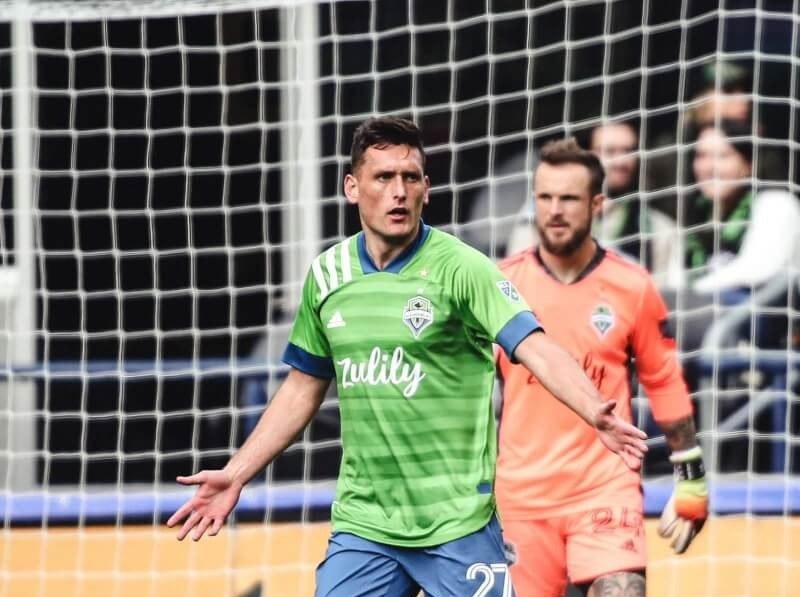
SportsEdTV: We're here today with Shane O'Neill, a central defender with the Seattle Sounders. Thanks for joining us today. Shane, I know there's a deep Irish sporting background in your family and a sporting pedigree. Can you share your family’s sporting background?
Shane O'Neill: Yes. So, my dad played football (Gaelic Football) for Cork and what seems to be some of their glory years in the early 90s. He won an All-Ireland title in 1990. That was before I was born, so I didn't get to experience that really well. My first memories of other family members sporting wise would have been my uncle, Maurice Fitzgerald. He was an incredible Gaelic football player for Kerry, and I remember vividly going to a lot of his games as a kid. I've actually watched a lot of his videos and I've talked to him a little bit as well, just about his mentality, mindset, and how he made some incredible high-pressure performances.
SportsEdTV: Are there any particular things he shared with you on performing and scoring crucial scores?
Shane O'Neill: Yeah, I think the biggest thing is just learning to trust yourself and learning to let go of the shot. I remember vividly him talking a lot about unshackling yourself because you have to believe in yourself and you have to back yourself in the pressure moments. He talked a lot about visualization, which is kind of interesting because you wouldn't think that 25 years ago, that somebody playing the game would be thinking like that. I definitely think he was ahead of the game in that regard. He talked about, I kicked all these points before in my head before I ever did him, so I took a lot away from that and let yourself loose. He explained that nobody's going to make a huge impact if you're not brave. You have to take some risks at times, while not being reckless. If you want to do something special, you have to kind of put it on the line. My older brother played college football at the University of Colorado. He was a phenomenal athlete for a lot of different sports. My younger brother played college soccer at Wisconsin and then Villanova. I have a sister who plays college basketball, and my youngest brother is committed to Creighton for soccer.
SportsEdTV: For those that may not know what we're talking about, the sport of Gaelic football in Ireland, which is an amateur sport has been played at a professional level for many years. Shane's uncle was a true legend in that sport. You mentioned your older brother. Am I right in saying that he walked onto that football team?
Shane O'Neill: Yes, as a punter. He had an interesting story. He was a really good multi-sport athlete. He then focused on basketball. It's a really tough sport to crack into. I think he had all the tools and he had some offers, but he ended up deciding to just go to CU. I think he was a little burnt out and took a year off sports. Then, he walked on and played four years with the football team. He earned a scholarship after his first year. He was a proper athlete.
SportsEdTV: It's a very talented family for sure. I know growing up you played multiple sports. What sports were you playing and how did it progress to that stage of you deciding to focus on soccer?
Shane O'Neill: I would say there were three sports that I had a pretty genuine interest in. I played baseball, soccer, and basketball. One thing that vividly stands out in my memory, I grew up having an Irish dad and he was into soccer. Saturday mornings I was looking forward to is watching the Premier League. I think at that time there was Fox Soccer Channel. It was that time when Chelsea was becoming a proper team. That got me into soccer big time. I remember Damien Duff and Frank Lampard and John Terry just being these guys that I was really into.
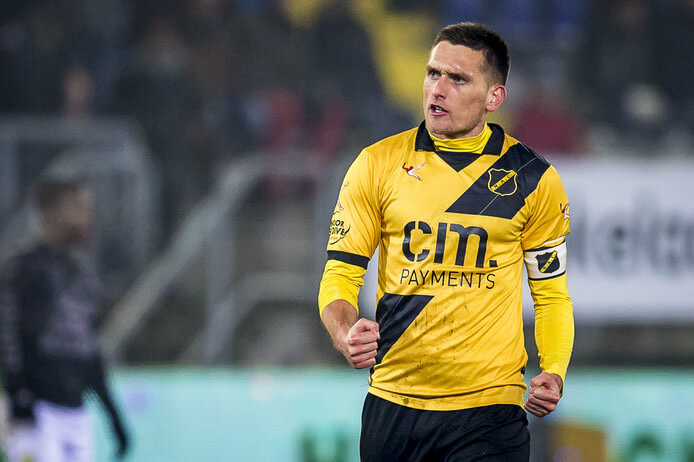
Shane O'Neill: I think that kind of spurred my real passion for soccer. As you get to high school, you have to whittle it down a little bit because you can't do everything. I was by far best at soccer at that time, so I dropped baseball then and then basketball. My brother played basketball and I was passionate about that sport as well because I think it's similar to soccer. It's very high intensity and it's up and down. I played basketball all four years of high school as well as soccer. It was similar to my brother in the way that, I was a good basketball player, but for me, where I went on a different path as my brother. I never really thought that I was going to pursue basketball. I always knew that if I'm going to pursue a sport, it's going to be soccer. Because of my body type, I was better. I was a really good soccer player and I genuinely thought that I have a chance in soccer. I would say that those were the three sports I primarily played. There are a few sports that I wish that I had dabbled in, but at the end of the day, I think it all worked outright.
SportsEdTV: So you're in high school, you're seeing that maybe soccer is the path. What was the first indication that you do have a future? Did you get selected to some teams that you were you were shooting for?
Shane O'Neill: There were six kids in my family so getting to practice wasn’t easy. Before high school, I played for a good but not like the best team in the state by any stretch of the imagination. It was a little bit crazy. They were like, listen, if you come to one practice a week, it's no problem. Sometimes I wouldn't even come to practice because, with six kids, there was just a lot going on. And look, sometimes I think about it and I can't believe where I'm at. When I was a kid, I'd practice in the backyard, but I wasn't doing five practices a week as kids do nowadays. I had one practice a week and I'd play games on the weekend. Honestly, when I got into high school, I knew I was good, but there was never a thing of like, I'm going to be a pro. I had this dream and I wanted to be, but I think it wasn't the case really until I joined the Rapids Academy. Growing up, I was a striker and I was a forward. In the first six months of my junior year, I couldn't hit the side of a barn door. It was a joke. I was so bad, and I was looking to get a Division One scholarship. I believed in myself, but I just wasn't performing. I would say that the big changing moment was that winter. It would have been the middle of my junior year of high school. The coaching staff is like, listen, we're going to put you in the midfield and we're going to see how you go from there. The next six months went very well. Then it all just changed. My senior year of high school was when everything clicked. Everything went into complete overdrive that year. I got selected to an All-American game that I got the MVP. I set the record for goals in Colorado. Everything just clicked in my senior year of high school. I scored a ton of goals in the academy. It all culminated into that. Just a huge, huge year. So, that's how I got the professional contracts at the end of high school.
SportsEdTV: So once you moved into that midfield role, you ended up actually scoring more goals and it just all sort of fell into place a little bit.
Shane O'Neill: Yeah. I think that growing up, I never even got selected for that regional ODP team. All those things spurred me on like that. They kept me grounded. I didn't get any sort of big recognition within soccer until my senior year of high school. I think that helped me because I never really got ahead of myself. It was always like, OK, no, you didn't make this team. You didn't make that team. It always just kept driving me on until that senior year. I think just moving into the midfield, I had the understanding of how to score goals, but it just allowed me more freedom to get on the ball and dictate the game a little bit more. It raised my confidence and yeah, things just clicked as I said.
SportsEdTV: So, bring us from that stage where you got selected by the Rapids and getting your first professional contract?
Shane O'Neill: You're stepping into the unknown because the Rapids had only signed one other player before me, and he had never played to that date. There are other reasons for that, but the Rapids hadn't had a homegrown player make a debut, so they hadn't had a player make an impact. It was a little bit of like, OK, what are we getting ourselves into here? On the one hand, it was exceedingly tough because I had the scholarship to go to Virginia. My parents thought maybe you should go. I decided to sign for the Rapids.
I think one interesting thing—and I think helped me a lot—was that two months after I signed, I got hit in the face in training by a teammate. I fractured my orbital bone and I had to get surgery and I missed four months. And it was really tough to take. It allowed me to step on the outside and I was able to learn how to be a professional. You see these guys coming in, doing their work after all this kind of stuff, and how to handle yourself in the locker room. I think it just allowed me to be like, OK, this is my job now. This is my career. Even in the training session when I got hit, people live and die by this thing almost. I think in that regard, it taught me some good lessons. I think that second year when I came back, I had been out all that time. I was able to use all those lessons to kind of have a really, really break out year, that next season.
SportsEdTV: It's a big step from playing in high school to all of a sudden be on the training ground with all these pro soccer players. Walk us through the next couple of years, and some of the experiences you had with the national teams at different age groups?
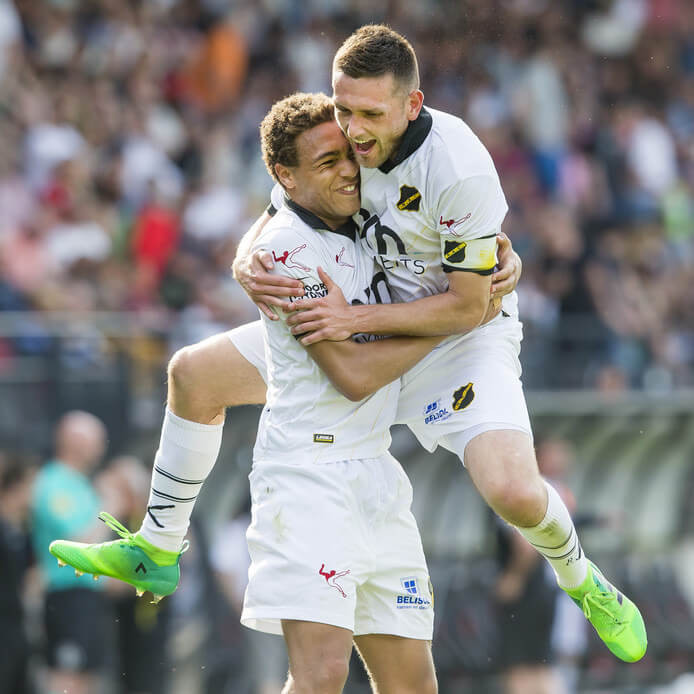 Shane O'Neill: I remember the first thing I came back to after the orbital bone fracture was that the US under 20 had a World Cup in June of 2013. This was January and there was a ton of injuries to all the center backs within the group. And at the time, whatever it was in 2013, there weren't a lot of players my age signed professionally. I was always gonna be in consideration. Just the fact of the matter that I was professional. They called me and they were like, we don't have any center backs. This was how the whole center back thing started. So that January, I played pretty well. We qualified for the World Cup. And when I got back to Colorado, they were like, listen, you know, until that World Cup, it's pretty smart that you've got to get these reps in the center back because you've never played there before. I remember I joined back up with the team after maybe two or three games because we were down Mexico qualifying for the World Cup. The first game back, I was on the bench and we're playing the L.A. Galaxy and the center back got sent off straight red. And so, it was just like here we go, jumping into the deep. I didn't know what to expect. I hadn't really played significant minutes in any MLS game before that. From then on, I just took my opportunity and that was the rest of that season. It was all confidence. Like that was that season. There wasn't anything technical or tactical spectacular about my game. It was all just mental. I was young. I was just in the zone essentially and playing the U20 World Cup, was starting every single game for the Rapids. I just couldn't even believe it and my performances were reflecting that. I didn't have any stress. There was no pressure on myself. The coach at the time was incredible. He was so good with young players.
Shane O'Neill: I remember the first thing I came back to after the orbital bone fracture was that the US under 20 had a World Cup in June of 2013. This was January and there was a ton of injuries to all the center backs within the group. And at the time, whatever it was in 2013, there weren't a lot of players my age signed professionally. I was always gonna be in consideration. Just the fact of the matter that I was professional. They called me and they were like, we don't have any center backs. This was how the whole center back thing started. So that January, I played pretty well. We qualified for the World Cup. And when I got back to Colorado, they were like, listen, you know, until that World Cup, it's pretty smart that you've got to get these reps in the center back because you've never played there before. I remember I joined back up with the team after maybe two or three games because we were down Mexico qualifying for the World Cup. The first game back, I was on the bench and we're playing the L.A. Galaxy and the center back got sent off straight red. And so, it was just like here we go, jumping into the deep. I didn't know what to expect. I hadn't really played significant minutes in any MLS game before that. From then on, I just took my opportunity and that was the rest of that season. It was all confidence. Like that was that season. There wasn't anything technical or tactical spectacular about my game. It was all just mental. I was young. I was just in the zone essentially and playing the U20 World Cup, was starting every single game for the Rapids. I just couldn't even believe it and my performances were reflecting that. I didn't have any stress. There was no pressure on myself. The coach at the time was incredible. He was so good with young players.
As that season finished out, I got called into the US men's senior squad. That would've been 2014, and the year the World Cup and January and the only issue with that are I think that, if I'm being honest, it was all just mental, and my confidence was so sky-high. When you take that next step to get to the top level, I wasn't professional enough at the time to cope with it. I don't think I was disciplined enough at the time. It wasn't a bad experience; I don't think I was ready to make that next step. Then, the unfortunate thing was our coach at the Rapids. The coach that was giving me my opportunity, left. He left to go to Dallas. So, for the next couple of years, I was under different management. That's always the challenge. I never really got back to the heights of 2013 with the Rapids. I had a really good run in 2014 for a while and then just experienced a knee injury. From then on with the Rapids, it was always a little bit up and down.
SportsEdTV: Would that have been your first major injury at that point? How long did that put you out for?
Shane O'Neill: Yeah. So, I had never been injured before. I got a knee injury and I was out for two and a half months and I do think that affected how the Rapids saw me long term, and I can understand that now. I think at that moment I couldn't understand. Even when I came back, it was always nagging at me and it was always bugging me. Thank God it kind of went away after maybe a year or two. It definitely was bugging me for quite a while. I think they saw that and I was coming out to the end of my contract and they were probably like, I'm not so sure. It is funny how those little moments, those injuries, and a change of coach can affect your trajectory as a player. That's why a big part of it all is just getting a break, having a bit of luck and somebody on your side I felt I had that first couple of years and not saying that I didn't have that in the next couple of years, but I just don't think I got the kind of breaks I was getting early on. So in 2014, I missed two and a half months came back. I actually got called into the national team again the next January in 2015. Honestly, that was a great opportunity. And I think that was a bit of a disappointment for me because I had the experience the year before. They bring in a lot of American players and I knew what it took, and I need to be physically fit and mentally fit. I felt that was just a disappointment with the way I didn't capitalize on my opportunity. I was on the bench for two national team games that January. It was a big achievement. It was a big opportunity for me. And I went back to the Rapids and that was the end of the road with the Rapids because I was sold in May of that year.
SportsEdTV: So, that last time with the national team in 2015, was that Klinsmann's time in charge? How was that experience? What was he like to play for?
Shane O'Neill: Honestly, I loved it. You know, I really liked it. It's just the intensity. The commitment to the game. The commitment to training at a high level. I think especially when you go over to Europe, you definitely realize that there are countries in Europe that the commitment to the game is just on another planet. There's training twice a day. You know, the fitness aspect, the diet aspect, just everything. Everything you can imagine just to the next level. That's what I liked about Klinsmann, he was just so dedicated. That's what he wants from everybody in the camp. That's what he wants in the team. I thoroughly enjoyed it. It was not easy and that's why both times where I kind of broke down, they were so challenging that I don't think I was ready for it. That's why I think the second time I was disappointed because going in, I knew this is going to be very challenging. And again, I don't think I was prepared for that.
SportsEdTV: So, once you got to the end with the Rapids, tell us about what decisions you had in front of you at that point?
Shane O'Neill: Yes. When I look back I don't necessarily regret it, but I wish that I would have had one or two other voices that I would have been talking to make a more well-rounded decision. Essentially what was happening was that the two experiences I was talking about were obviously with the US first team. But I was also playing for the U.S. twenty-three team because the Olympics were in 2016 and we were trying to qualify. All of 2015, we were going to these games, and Denmark and Bosnia were trying to qualify for the Olympics. What would happen is I would go away and MLS is not on FIFA schedule. You go away and you miss two Rapids games, come back midweek and you'd be getting called into the USA twenty-three team. I think I should be playing for the Rapids first team even though I've missed two weeks of training and a couple of games. You come back and you'd still be thinking alright, I think I should be in the team. I go away, I come back and I wouldn't be on the team. I was getting extremely frustrated. This was the last year of my contract. Yeah. I started to just kick up a fuss and stopped applying myself in training because I knew I was going to get called up to the other US 23 team because I was playing well for them. And I'd come back and again, I wouldn't be playing. It was easier to just tie it off. I definitely regret that because I think the Rapids were just like, we have to get rid of this guy. You know, this has come to the end of the road. At the time, I had an agent and it's tough because you're dealing with a 21-year-old kid who's got a huge attitude and thinks all at the world of himself. He was like, let's move you on, and let's get out of there.
This London based agency was trying to tap into the American market. They knew I had an Irish passport, so they collaborated with my American agent. They start putting these stories in my head like, oh, you'll go here, and it'll be great. We have all these connections. As a 21-year-old, you're like, let's go. Let's sign me up. I think there weren't enough people in my corner that knew the ins and outs of the game.
I was very naive, so this company from London did this kind of third-party transfers through the team in Cyprus. It's a long story, but long story short, I ended up on the loan with a team in Belgium. They sold me on this great partnership with this team in Belgium. You'll go there, you'll play all the time, your value will go up, and then you'll get sold on to, hopefully, England or one of these better leagues.
And so, again, like 21 years old, you're like, this is unbelievable. Let's go. I honestly did that. And then you get on the ground floor and it's just not as it seems. Every single player had the same story that I had. Oh, yeah. Everyone had connections with this club. Everyone was in the same boat because, in Europe, there's definitely some dodgy dealings and some of these smaller countries.
I think it just all hit me. When you're in a foreign country where you don't speak the language and you have nobody there, it becomes very real. It's like, wow, this is a huge decision that I just made here. Looking back, I wasn't ready for it and I didn't really understand the magnitude of the decision. It was just a huge learning experience.
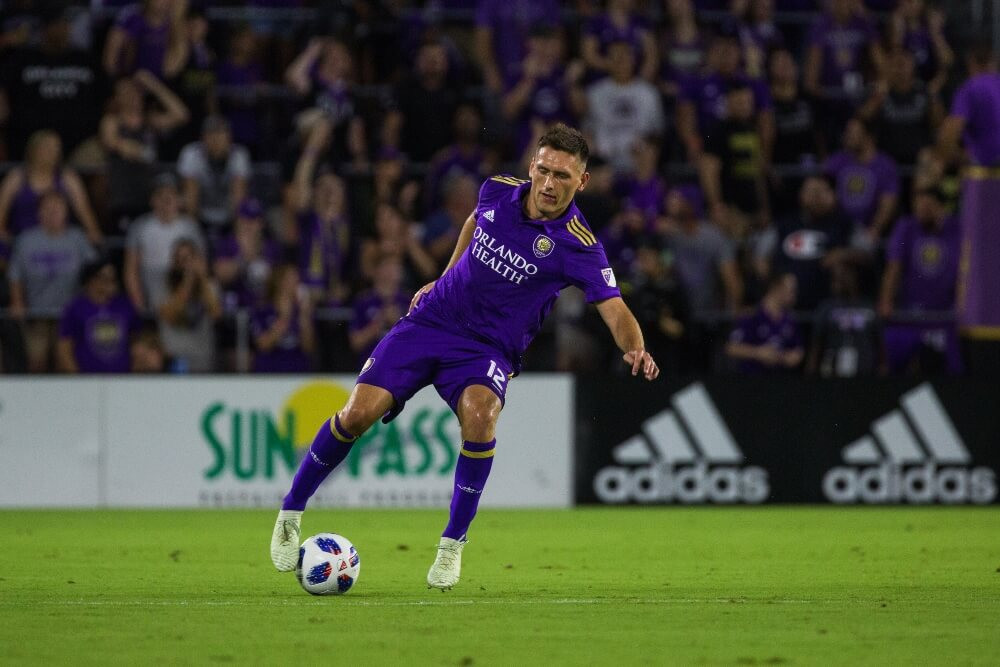
SportsEdTV: You've clearly learned a huge amount from each of these experiences. Tell us about coming back to the US.
Shane O'Neill: Obviously, I was in Europe for three years. The first-year kind of being, just a total shell shock. It was kind of a huge letdown if you will. Going from getting called into the US national team to honestly feeling like I was on the brink of not being in the game much longer. It was scary. It was a very tough moment.
I remember after that first year, going back to what I would do after all the years in Europe is I go back to Ireland before I went back home because of obviously such an easy trip. I remember I was in Ireland and my uncle, not Maurice, but a different uncle. He asked have you thought about what else you might do if it doesn't work out here in the next couple of months? I was like, OK, before that in 2014, 2015, I ed to play in the Premier League. I'm going to make the highest level. And then fast forward a year and a half and this guy's asking me. What other job are you going to do? I remember vividly being like, oh my God. that's a tough question to even grapple with. So that summer, I just put the head down to the umpteenth degree and my second year in Europe was a huge success. So that was that was really nice to right the ship of the first year.
The only big disappointment was the third year in Europe was really destroyed by injury. I had a bad injury that I missed four and a half months. When you're out that long, it's killer. So, coming in at the end of that year, it was about March of 2018 and I'd had two kinds of unsuccessful years in Europe and one very good year. I just knew that the right step for me was coming back to the states from a personal life standpoint and a professional standpoint.
Even with like physios and stuff like that, the MLS is just such a high level. I knew that even just to take care of my body. The best thing to do would have come back to America. In March, I started to put out feelers like, let's try and get back to the States now. Orlando was a very interesting experience for me. Obviously, the club was really struggling when I got there. And the first six months at the club, I played every game, which was incredible. I had been out for so long with injury and I come back and I start playing every game. I mean, we lost. I think we lost every single game. What that does to your confidence is unbelievable. It was really tough to be back in MLS where I had all this anticipation, joining this club that is going to try and fight for the playoffs and just to be a part of just such a losing culture.
That first year was brutal. I like to talk about the learning experience. I remember we actually got a new coach going into last season, an Irish guy, James O'Connor, an unbelievable coach. He believed in me a ton and I went into last season truly thinking this is going to be your breakout year. This is going to be your year. I felt mentally, physically, everything you want, like I was ready to go, and all pre-season was top, top level. And it was just amazing. Like the first game, couldn't have gone better. The second game couldn't have gone better until the last kick. The ball gets crossed in and the striker nicks in front of me and heads it in and the result falls on you as a central defender. From then on, it was just mistake after mistake and mentally I just couldn't get out of it. Eventually, I got dropped. It was just another learning experience of the mental side of the game and how important that is. I would have thought before that season I was so ready for my breakout year and all these things and the season just comes and goes. We're sitting here in a different city and a different club. But honestly, I wouldn't change it for the world to the situation I'm in now, couldn't be any better, honestly.
SportsEdTV: You mentioned about coming back and some of the advantages of being back in the MLS. So how would you compare it to Europe in terms of preparation and how players are looked after? What's the comparison?
Shane O'Neill: Well, firstly, let me say, the difference between MLS when I left, and the MLS now is night and day. The MLS now is almost as good as it gets in terms of everything off the field. I think people's perception of Europe is like, oh, soccer is so important there like everything is just miles better over there. And that is completely false, except if you're at a really big club. Obviously, if you're in the Premier League, that's a different story. In some of these smaller countries, unless you're with a really successful club, like an Ajax in Holland or Club Brugge in Belgium, the facilities are nowhere near as nice as they are here. The support staff is nowhere near as big as they're here. And that’s all the off-field stuff. It's much more professional here, which can be a little bit surprising. I would just say that the growth of the league in the last five years has been absolutely incredible. Even the level on the field is just completely different from when I had left to when I've come back. It's definitely moving in the right direction.
SportsEdTV: If you were to give some advice, let's say, to a 19, 20-year-old, whether they're from the US or in other countries, whose thinking, do I stay where I'm at? Do I stay in my home country with my home league and develop some more? Or, do I jump at some opportunity that might be put in front of them?
Shane O'Neill: Jump at an opportunity. You can never write that off because you don't want to have any regrets. I have zero regrets about taking the opportunities I took. The only thing I would say is especially if you're leaving, even like your hometown and going somewhere else, you have to be you have to take into consideration the off-field stuff. You have to understand that is going to play a huge role in how you play on the field. For me as an example, like, you know, if you're in the French-speaking part of Belgium and you don't speak French and all you do is go to training, go home and sit in your apartment all day, you have to understand. You have to be ready to have those experiences. If you're not willing to fully throw yourself into trying to learn French and doing all those things, it can be a challenge. If I was to give advice, I definitely would think just make sure you understand the magnitude of these decisions in the sense of your personal life and being happy off the field. And also, just if you are moving cultures, do everything you can to try and learn about that culture and learn the language, especially because that just makes a world of difference.
SportsEdTV: Talk to us about your influences as you've gone through your career. You mentioned talking to your uncle back in the day. Are there any specific soccer coaches, maybe a youth coach, some of their coaches that just came alongside you in the important times in your career? And how much of an influence did they have?
Shane O'Neill: Actually, my high school basketball coach definitely has had a huge influence on me because he was an older man, but he was just fiery, and he just wanted you to compete. He just wanted you to compete at your highest level. That's all he really cared about, was just competing at the highest of your ability. I think I actually learned how to compete more under him than anyone else. Like just about, going the extra mile for your teammate. He was a massive influence on me from my competitive standpoint. The first coach I had with the Rapids, just from the standpoint of playing with your personality, like letting your personality play and in a similar way, that entails competing and going 100 percent. But he was kind of like a father figure to me, in terms of soccer. He believed in me and gave me my opportunity. If he wasn't happy with me, he would be the first to tell me, you know, if he wasn't happy with something, I was doing off the field. He wouldn't beat around the bush. And he was father figure where I thought, jeez, I don't want him angry with me. He was a massive influence. The only other two guys that I would shout out really would be when I was at Cambridge United, my first year in Europe. So, I was in Belgium for six months and in the second six months, I was in Cambridge. We had an Irish assistant coach called Joe Dunne, and he would always kind of just bring me out after training and work on some just work on the little details of the game. It was really important because I think it was at a time in my career where I had no confidence left. I wasn't ready to pack it in by any means, but I didn't have that drive and he spurred me to be like, no, let's do these little drills. Let's keep working. He kept me in it in a sense. He kept my head in the game because in England the banter is ruthless and it's like a crime to do extra training over there. But they're just absolutely ripping you to pieces for being a coach's pet and everything like that. For me, it was really important actually to keep it up. As I said, we had our James O’Connor. I would say him from a team standpoint like he was so culture-oriented and be a good teammate. I learned so much from them.
SportsEdTV: So, looking ahead a little bit, a lot of people say that the best years for football are from twenty-seven to two early thirties, you know. I'm not sure if you agree with that, but what would you like to achieve in this next period of your career?
Shane O'Neill: I feel like, with any team sport, so many things are uncontrollable. You can't control if the coach picks you. You can try to control your opponent does. But the end of the day, like, he's going to do what he's going to do and you're going to do what you're going to do. Sometimes the ball goes your way. Sometimes it doesn't. I feel like I've definitely learned in this game. Just control what you can and do everything you can. I still truly believe in myself. I haven't ruled anything out yet. I know that I have limitations in my game. Absolutely.
Do I think that my mental improvement has been massive? Absolutely. Do I have specific goals at this point? It's tough to say, but I do think I'm in a great situation. I'd be lying if I said I haven't. You know, I haven't given up the hope of potentially playing for a national team at some point. I think I have the ability and I think it's just about unlocking the mind and like what Maurice said, trying to like letting myself loose a little bit because there has been a ton of ups and downs. I'm at a point now where what difference does that make? We're here. I'm still in the MLS. I still play for the team that won the MLS Cup last season, so I'm in a great situation and now in need to just capitalize.
SportsEdTV: We'll move on to what we'll call our quick-fire round here. Have you ever, ever been sent off in a game?
Shane O'Neill: I have. I have. I've been sent off. I've been sent off twice. One of them was much worse than the other. One of them, we were playing Mexico in the final of the World Cup qualifier for the U20 World Cup, but we had the two finalists qualify. So, we knew we had qualified. It was a massive game in Mexico. Huge crowd. And it went into stoppage time. The tough thing was the last thing the coach said to us for a long tunnel is he's like, guys, you get sent off in this game, you missed the first game in the World Cup. So do not get sent off and we get into stoppage time. Like I said, whoever won it didn't matter. We are qualified. All it mattered was the different color in your medal. But like, it really it was just it was a tournament to qualify for the World Cup. I remember we had conceded a goal in extra time. We were already losing, and we'd thrown everybody forward. I was the last man this quick guy flicked it over my head. I put my arm out and completely unintentionally, but totally hit him in the face and got a straight red. We were playing Spain in the first game of the World Cup and I was suspended. That was a huge disappointment. Then I got sent off once in the MLS. And I remember because I was the last man and I fouled the guy around at the box. I remember the stadium that we played at. It was San Jose and we used to play at the Santa Clara Stadium and there were these steps to go down to the locker room and I remember sitting on the steps just like this, hands in between my knees praying that the free-kick didn't go in. I remember when the crowd was like, 'oh', I was like, oh, thank God. I waited so long.
SportsEdTV: Name some of your injuries.
Shane O'Neill: The only injuries that I've missed significant time that would have been the MCL injury on my knee in 2014 or I missed two and a half months. The big one was this Ostia pubis, which is inflammation of your pubic bone and I missed almost five months with that. That was a tough injury.
SportsEdTV: What's the nicest thing you've ever said to referee?
Shane O'Neill: I can't remember a conversation I've had with referees. Honestly, when I was in high school, I was terrible for arguing with the refs. Like, absolutely the worse is that I did that.
SportsEdTV: The Irish background, I wonder?
Shane O'Neill: I think honestly, having seen my brother get so many technical fouls in basketball and getting red cards left and right. Gaelic football and soccer. I just one day I just stopped. I was like, I'm done. I'm done with this. And I always thought, you have some choice words occasionally. But I'm not huge on arguing with the refs anymore.
SportsEdTV: What's the best thing about being a professional?
Shane O'Neill: I mean, the obvious one is just being able to play every single day. I mean, it's such a pleasure to go out and be able to play and work on the game and just compete. And aside from that, which is the best thing, I think the feeling of walking out for a game. That's a special feeling for sure.
SportsEdTV: What is the most important piece of advice a coach or a player has offered you?
Shane O'Neill: It was actually in Cambridge when I was leaving Cambridge. We just played our last game. It was not good. It did not work out for me. I went into the coach's office after I was just like, essentially a broken man. What do you think? What do you think here? Because I was especially in my early days as a player, I was really grappling between being a midfielder and a center back because I wanted to be a midfielder, but I think I had grown into being a better center back. And he was just like, listen, you need to commit to one or the other. Full-blooded and just go all in. Either if you're going to be a midfielder, you need to work on your first touch and work on your passing. You work on your fitness. You want to be a center back. You need to be OK with being a center back. And you need to become more physical and you need to be dominant in the air. You need to decide and go 100 percent with that decision.
And I had left that meeting being like, I'm going to do everything in my power to be the best center back that I can be. I haven't really looked back from there. I think that was important for me because I was like I said, I was always back and forth. I always want to be back in the midfield. And I think that was a really important meeting to have with him, to just be like, all right, I'm going was the center back and that's it.
SportsEdTV: Shane, we appreciate you taking the time to share with us, talk with us today and then just give us such a really interesting insight into your career today. I just want to wish you the very best of luck and we'll be following the rest of your career here. You have an unusual season ahead of you here. I know this year, but it'll be fun to watch what happens from here. Thanks again, Shane.
Shane O'Neill: Thanks for having me.

